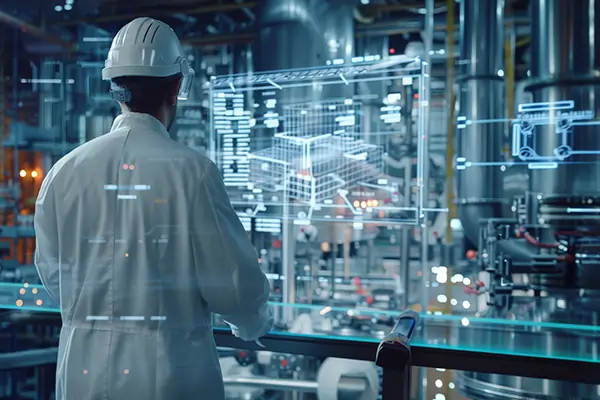The manufacturing sector in 2025 is changing rapidly with the force of innovative technologies, environmental sustainability aspirations, and a changing workforce. As corporations respond to global challenges and opportunities, a number of crucial trends are on the horizon that will define the sector's future. From artificial intelligence and automation to environmental practices and digital business, manufacturers are reinventing the way they do business to remain competitive and adaptable in an increasingly changing world.
Generative AI and Future Robotics
Generative AI and future robotics are being increasingly used by manufacturers to elevate the efficiency of operations and innovation. Deloitte's 2025 Manufacturing Industry Outlook shows that 55% of industrial product manufacturers currently use generative AI tools, and more than 40% intend to boost investment in AI and machine learning in the next three years. The technologies are being incorporated into digital transformation plans aimed at creating value and enhancing business performance. However, data quality and integration continue to pose major hurdles to AI adoption.
Digital Transformation and Smart Operations
The transition towards smart operations is accelerating, with industrialists making investments in digital technologies to streamline processes and improve productivity. Deloitte's survey revealed that 98% of manufacturers surveyed have started their digital transformation process, from 78% in 2019. Investments in cloud, AI, and 5G are delivering enhanced operational efficiency, cost savings, and product innovation. The technology trend toward software-based manufacturing is also apparent, with businesses increasingly linking to products in the field to capture usage and performance data.
Sustainability and ESG Commitments
Environmental, Social, and Governance (ESG) issues are emerging at the core of manufacturing strategies. Manufacturers are initiating changes in their operations along their value chains to achieve sustainability targets and adhere to changing laws and regulations. Deloitte's 2025 Manufacturing Industry Outlook emphasizes the necessity of paying attention to corporate social responsibility and keeping track of rapidly changing ESG dimensions. Organizations are moving towards ESG commitments by initiating operational changes along their value chains.
Workforce Transformation and Skills Development
The manufacturing industry has a major skills shortage with an estimated 3.8 million new jobs in the U.S. by 2033. But between 1.9 million of those jobs can be left unfilled based on difficulties in attracting and keeping workers. There is an ever-growing need for digital skills, especially for simulation software. Manufacturers are teaming with educational and government agencies to improve the workforce and train workers in programs. This emphasis on transforming the workforce is critical to remaining competitive and driving growth.
Supply Chain Resilience and Automation
The desire to reshore manufacturing has resulted in increased automation and embracing of digital technologies in an effort to drive supply chain resilience. Regardless of efforts at reshoring either having peaked, companies choose "friend-shoring" by relocating to nations such as Vietnam, Mexico, India, and Thailand. These nations present fewer costs, talented labor, and regulatory certainty. The combination of automation and digital equipment is enabling producers to raise efficiency and be responsive to evolving global realities.
Deep Connection: 5G and IoT Convergence
Interconnection of 5G technology with the Internet of Things (IoT) is revolutionizing smart manufacturing. 5G allows data sharing in real-time at high speed and low latency for remote monitoring. Interconnection of 5G with IoT facilitates the development of integrated, intelligent systems that optimize energy usage, minimize downtime, and optimize asset utilization. These technologies are vital to attain sustainability objectives and improve the state of operations.
The 2025 manufacturing runs on the convergence of advanced technologies, sustainability, and human growth. Businesses that ride these waves and invest in innovation will have a sound platform to succeed in the new industrial age. Manufacturers who are geared to digital transformation, sustainability, and human development will be able to address the opportunities and challenges of the future.
.webp)










.webp)































.webp)
